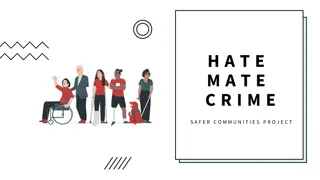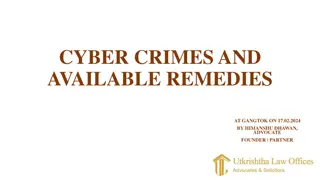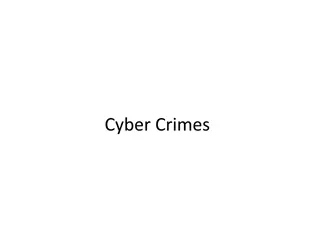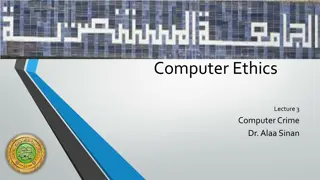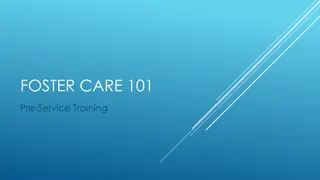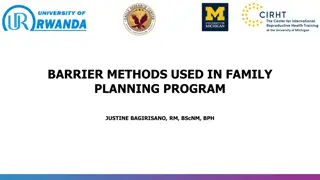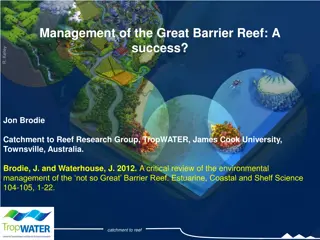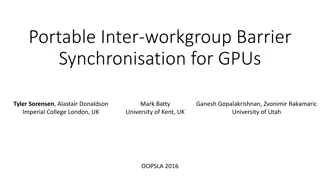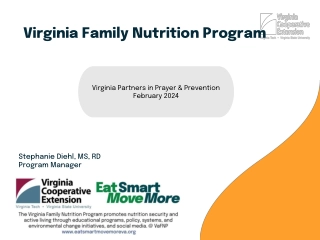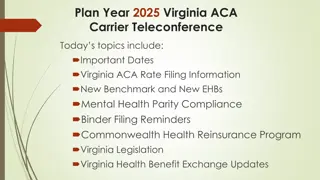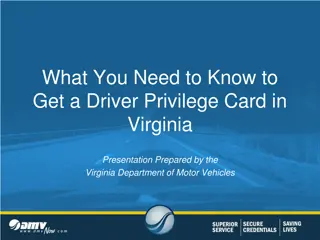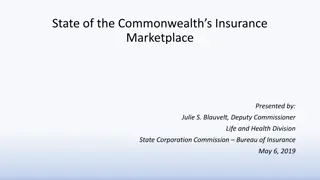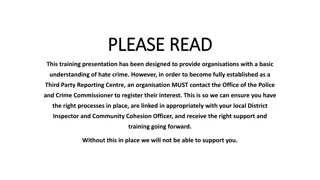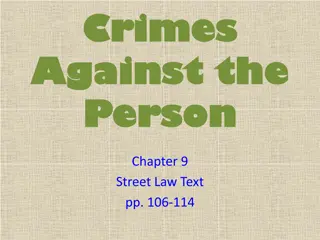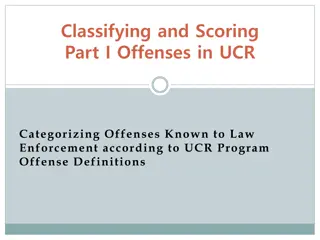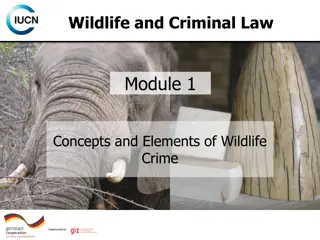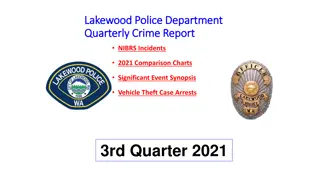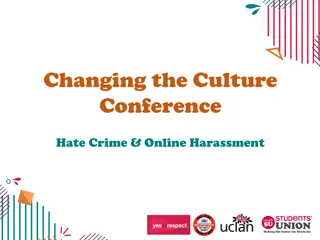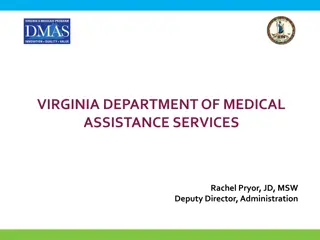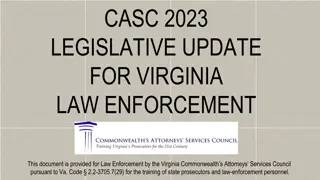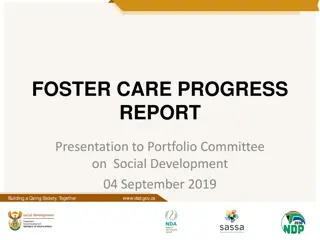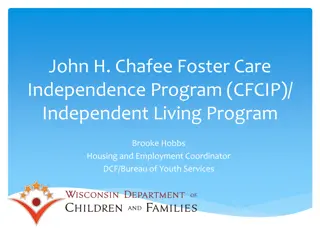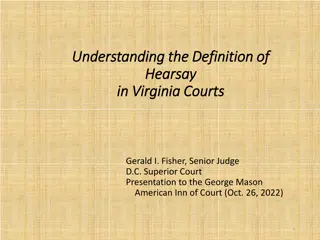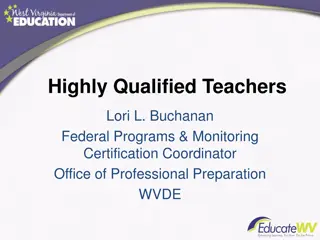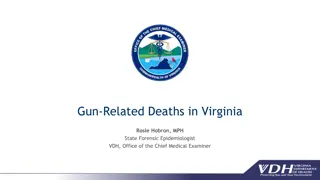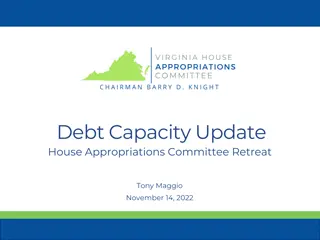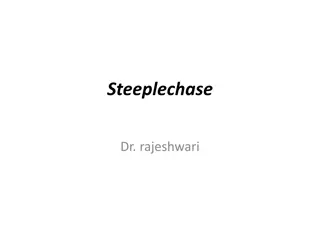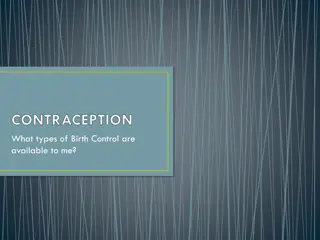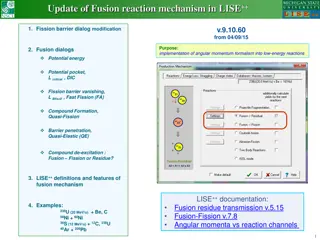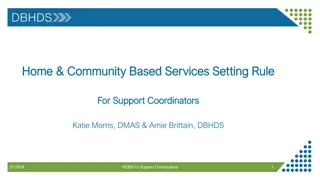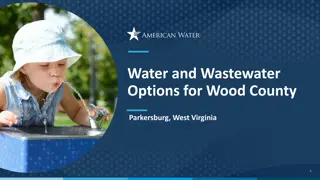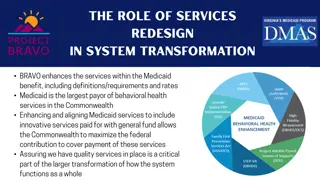Understanding Barrier Crimes for Foster Parents in Virginia
This presentation discusses barrier crimes in Virginia concerning individuals seeking to become kinship foster parents. It covers policy decisions, federal laws, time limits for certain crimes, exceptions, and waivers. The content highlights the differences between federal and Virginia laws, the authority to grant waivers, and specific circumstances where exceptions apply.
Download Presentation

Please find below an Image/Link to download the presentation.
The content on the website is provided AS IS for your information and personal use only. It may not be sold, licensed, or shared on other websites without obtaining consent from the author. Download presentation by click this link. If you encounter any issues during the download, it is possible that the publisher has removed the file from their server.
E N D
Presentation Transcript
SJ 35 Joint Subcommittee: Barrier Crimes in Virginia Presentation Title Month #, 2017 June 14, 2021 Margaret Schultze, VDSS Commissioner Gena Boyle Berger, Chief Deputy Commissioner
2 Barrier Crimes What should/should not be a barrier crime? This is a policy decision for the commission and GA to make There are federal laws governing barrier crimes that VDSS must comply with One area commission may want to focus on is barrier crimes for individuals seeking to become a kinship foster parent, as VA law is much more restrictive than federal Presentation Title Month #, 2017 Margaret Schultze, VDSS Commissioner
3 Time Limits Federal law incorporates time limits for certain crimes If prospective foster parent has a felony conviction for assault or battery (victim was adult and not domestic violence related) or drug- related offense, conviction not considered a barrier crime as long as five years have lapsed VA law often requires longer time period (ten to 20 years) and for the individual to have rights restored by Governor Presentation Title Month #, 2017 Margaret Schultze, VDSS Commissioner
4 Exceptions Code of VA currently allows for some exceptions and waivers vary between programs with specific circumstances Sec 63.2-121 E-H allows for exceptions for a child placing agency to approve a foster or adoptive parent for certain convictions, when specified time period has been met Certain exceptions also apply for hiring at child day centers and assisted living/adult day centers Presentation Title Month #, 2017 Margaret Schultze, VDSS Commissioner
5 Waivers Federal law allows Commissioner waiver authority for employment at a child care center and for relatives of fictive kin to become foster parents, but Code of Virginia does not Code of Virginia does not allow for waivers for employment in assisted living, adult day, or child care centers One option could be to expand the waiver process so Commissioner has authority to grant waivers where federal law allows Presentation Title Month #, 2017 Margaret Schultze, VDSS Commissioner
6 Demographic/Recidivism Data Agency does not have this data Presentation Title Month #, 2017 Margaret Schultze, VDSS Commissioner
7 Comparison to Other States Virginia is much more restrictive with regard to barrier crimes for foster and adoptive parents https://www.childwelfare.gov/pub PDFs/background.pdf Staff compared Virginia to ten other states for barrier crimes for employment in child care. Virginia is far more restrictive. Presentation Title Month #, 2017 Margaret Schultze, VDSS Commissioner
8 Tiered Levels If GA were to change the statute, VDSS could implement time limits for certain barrier crimes to tiered levels For foster and adoptive parents, tiered levels could be split among following categories: violent felonies, crimes involving a minor, domestic-related crimes, drug-related crimes, and misdemeanors Presentation Title Month #, 2017 Margaret Schultze, VDSS Commissioner
Extra Slides (Background from Previous Meeting) Presentation Title Month #, 2017 Margaret Schultze, VDSS Commissioner
What are barrier crimes? Convictions of any crime as defined in 19.2-392.02 that disqualifies an individual from certain types of employment, volunteering services, or to operate certain regulated businesses Includes prior adult and juvenile convictions or adjudications based on a crime that would be a felony if committed by an adult within or outside of Virginia Designed to protect vulnerable adults and children As care models have evolved to promote peer support services and there is greater recognition of historical, racial inequities related to barrier crimes, some states have revised barrier crime statutes Presentation Title Month #, 2017 Margaret Schultze, VDSS Commissioner
Types of barrier crimes 19.2-392.02 has six clauses outlining barrier crimes: Clauses (i) and (ii) are various types of harmful or violent crimes Clauses (iii) and (iv) are drug-related crimes Clause (V) includes any offense for which registration in a sex offender and crimes against minors registry is required under the laws of the jurisdiction where the offender was convicted Clause (vi) includes any other felony not included in clause (i), (ii), (iii), (iv), or (v) unless five years have elapsed from the date of conviction. Presentation Title Month #, 2017 Margaret Schultze, VDSS Commissioner
Who is subject to barrier crimes? VDSS applies this statute to various components in our oversight of child and adult programs: Child care programs Licensed child placing agencies Foster and adoptive parents approved by local DSS or child placing agency Children s residential facilities Assisted living facilities Adult day care centers Presentation Title Month #, 2017 Margaret Schultze, VDSS Commissioner
Childrens Programs Child day programs, licensed child placing agencies [ 19.2-392.02, 63.2-1717, 63.2-1719, 63.2-1720.1, 63.2-1721.1, 63.2-1723, 63.2-1725] Prohibits hiring anyone or approving a foster/adoptive parent who has a conviction of any barrier crime, although certain exceptions apply Children s residential facilities [ 19.2-392.02, 63.2-1726] Prohibits hiring anyone with: a conviction or pending charges for harmful or violent crimes (clauses i and ii), certain drug-related crimes (clause iii) sex offenses and crimes against minors (clause V) a conviction or pending charges for possession or distribution of drug/controlled substance (clause IV) within five years prior to application or has failed to pay court fees Presentation Title Month #, 2017 Margaret Schultze, VDSS Commissioner
Adult Programs Assisted Living Facilities/Adult Day Care Programs [ 19.2-392.02, 63.2-1720, 63.2-1721] Prohibits hiring anyone with conviction of harmful or violent crimes (clause i of barrier crime statute) A program may hire an applicant convicted of one misdemeanor barrier crime as long as it does not involve abuse or neglect, or any substantially similar offense under laws of another jurisdiction, if five years have elapsed following the conviction Presentation Title Month #, 2017 Margaret Schultze, VDSS Commissioner
Background Check Process VDSS Office of Background Investigations (OBI) works with FieldPrint (fingerprint vendor) to take fingerprints and submit them electronically to Virginia State Police and the FBI OBI screens national criminal fingerprint history results to determine whether a barrier crime conviction exists OBI provides notification to VDSS licensed and regulated providers and DBHDS licensed Children s Residential Facilities via letter regarding an individual s eligibility to provide services or care based on whether a barrier crime conviction exists OBI attempts to respond to qualified inquiries within 15 business days Presentation Title Month #, 2017 Margaret Schultze, VDSS Commissioner
Common Barrier Crimes Common crimes resulting in an ineligibility finding for child day programs: 18.2-57 18.2-57.2 Assault and Battery Against a Family or Household Member 19.2-392.02 (vi) Felony within last 5 years Assault and Battery Presentation Title Common crimes resulting in an ineligibility finding for child placing agencies (foster/adoptive parents): Month #, 2017 Margaret Schultze, VDSS Commissioner Assault and Battery 18.2-57.2 Assault and Battery Against a Family or Household Member 18.2-248 Distribution, Manufacturing, Selling, Intent of Controlled Substance 18.2-57
Common Barrier Crimes Common crimes resulting in an ineligibility finding for children s residential facilities (VDSS and DBHDS licensed facilities): 18.2-57 18.2-57.2 Assault and Battery Against a Family or Household Member Assault and Battery Presentation Title Month #, 2017 Margaret Schultze, VDSS Commissioner
Exceptions Statutory exceptions do exist but often require multiple criteria pertaining to: A time lapse since convictions The crime not involving certain acts (ex. crimes against minors) Having civil rights restored by the Governor Participation in certain treatment/rehabilitation programs Presentation Title Month #, 2017 Margaret Schultze, VDSS Commissioner
Conclusion Virginia statute includes a lifetime prohibition for most barrier crimes Barrier crime statutes have become problematic for service providers to find qualifying employees There are critical shortages in the social services workforce and in the child and adult facilities/programs licensed by the department Barrier crimes also prevent employment in other job sectors (drivers, private security, health care). The impact to DSS is a limited job market for noncustodial parents who are required to pay child support, which results in the accumulation of debt and the increased likelihood that the custodial parent will need other benefits such as TANF, SNAP, or Medicaid New models of peer support care suggest improved outcomes for clients/patients but barrier crimes are a challenge to hiring those with lived experience Barrier crimes are also contributing to a shortage in foster parents, particularly individuals who wish to foster or adopt a family member Presentation Title Month #, 2017 Margaret Schultze, VDSS Commissioner
21 Questions? Presentation Title Month #, 2017 Margaret Schultze, VDSS Commissioner
Exceptions 63.2-1721 E. A child-placing agency may approve a foster/adoptive parent who has been convicted of not more than one misdemeanor offense as set forth in 18.2-57, or any substantially similar offense under the laws of another jurisdiction, not involving abuse, neglect, moral turpitude, or a minor, provided that 10 years have elapsed following the conviction. Presentation Title 63.2-1721 F. A child-placing agency may approve a foster parent who has been convicted of statutory burglary for breaking and entering a dwelling home or other structure with the intent to commit larceny, or any substantially similar offense under the laws of another jurisdiction, who has had civil rights restored by the Governor or other authority, provided that 25 years have elapsed following the conviction. Month #, 2017 Margaret Schultze, VDSS Commissioner
Exceptions 63.2-1721 G. A child placing agency may approve a foster/adoptive parent who has a conviction of any offense under clause (iv) of the barrier crime definition 19.2-392.02 who has had civil rights restored by the Governor or other authority, 10 years have elapsed following the conviction or eight years have elapsed following the conviction and the applicant (i) has complied with all obligations imposed by the criminal court, (ii) has completed a substance abuse treatment program, (iii) has completed a drug test administered by a laboratory or medical professional within 90 days prior to being approved, and such test returned with a negative result; and (iv) complies with any other obligations as determined by VDSS. Presentation Title Month #, 2017 63.2-1721 H. A child placing agency may approve a foster/adoptive parent convicted of any offense set forth is clause (iii) of the barrier crime definition 19.2-392.02 who has had civil rights restored by the Governor or other authority provided that 20 years have elapsed following the conviction. Margaret Schultze, VDSS Commissioner
Waivers 63.2-1723 The Commissioner may grant a waiver if any adult living in the home of a licensed or registered family day home applicant or provider has been convicted of not more than one misdemeanor offense of assault and battery or assault and battery against a family or household member as set out in 18.2-57 or 18.2-57.2 , provided that 5 years have elapsed since the conviction and the department has conducted a home study that included but not limited to: An assessment of the safety of the children placed in the home; and A determination that the offender is now a person of good moral Presentation Title Month #, 2017 Margaret Schultze, VDSS Commissioner character and reputation.
Waivers The waiver shall not be granted if the adult living in the home is an assistant or substitute provider or if the adult has been convicted of a misdemeanor under both 18.2-57 and 18.2-57.2, or any substantially similar offense. Presentation Title Any waiver granted shall be available for inspection by the public. Month #, 2017 Margaret Schultze, VDSS Commissioner The agency shall notify in writing every parent and guardian of the children in its care of any waiver granted for its operators, employees, or volunteers.


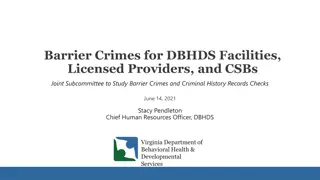
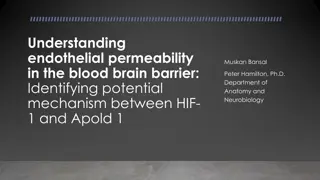
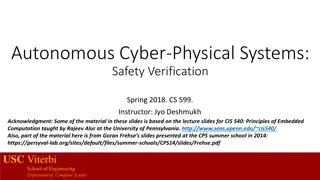

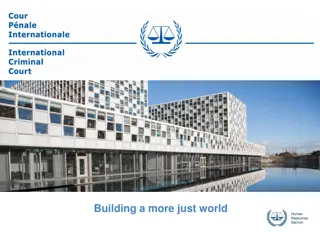
![Prevention and Combating of Hate Crimes and Hate Speech Bill [B.9B.2018]](/thumb/60513/prevention-and-combating-of-hate-crimes-and-hate-speech-bill-b-9b-2018.jpg)

